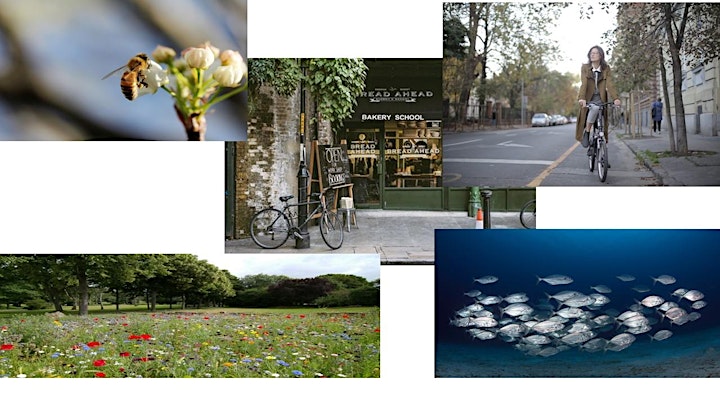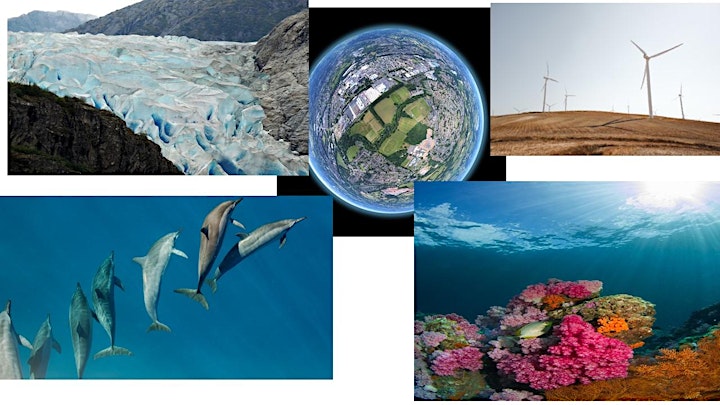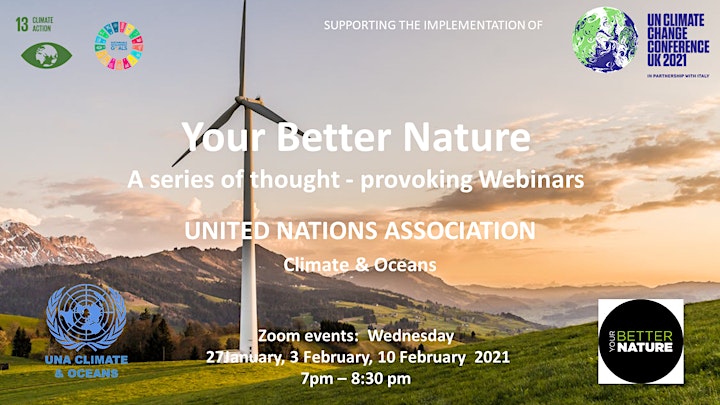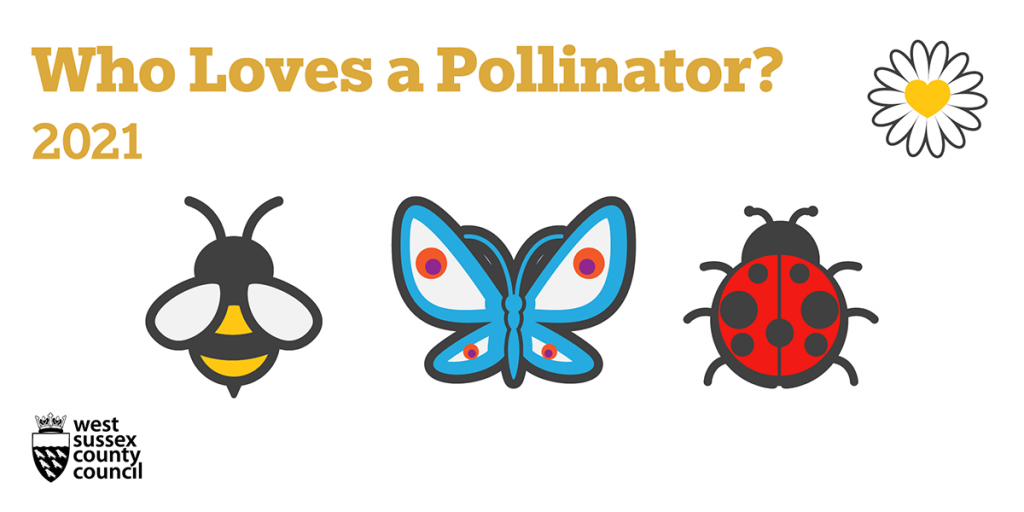Events in February 2021
| MonMonday | TueTuesday | WedWednesday | ThuThursday | FriFriday | SatSaturday | SunSunday |
|---|---|---|---|---|---|---|
February 1, 2021(1 event)
All day: Nature as TeacherAll day: Nature as Teacher All day Nicola Peel has been supported by the South Downs National Park to offer a free talk on biomimicry and learning from nature on 1st February 2021, 4pm.
Instead of learning about nature it is time that we learn from it. Nature has the answers we just have to ask the right questions
This has been created for teachers but is open to everyone
It will be live and interactive via zoom
Please help spread the word
|
February 2, 2021
|
February 3, 2021(2 events)
7:00 pm: COMMUNITY HUB (nee Climate Cafe)7:00 pm: COMMUNITY HUB (nee Climate Cafe) – For people interested in finding out more and getting involved in The Community Hub Cafe (working title). This will hopefully bring together the many community groups in Chi - XR, Transition, EcoChi, Swap Shop, Repair Cafe, BLM, and more. A space to eat, drink and network, a space to learn about lots of climate, social and racial issues, a space for HOPE! We are creating groups: Outreach, Buildings, Council & Legal and more. If this is something you would like to be involved with please join our Zoom on: Wed 3rd Feb 7.00pm Join Zoom Meeting https://us02web.zoom.us/j/86363242694?pwd=ZFVxVFlwOGo0VExJWGJYazRtWWJOQT09 Meeting ID: 863 6324 2694 Passcode: 632682 7:00 pm: Your Better Nature. A series of thought-provoking Webinars7:00 pm: Your Better Nature. A series of thought-provoking Webinars – This series of Webinars explores our stories and how the current, dominant human story is driving climate and ecological collapse.
About this EventOur individual, collective and organisational actions are driven by the stories we tell ourselves, the narratives that underlie and form our priorities, values and behaviours. This series of webinars explores our stories and how the current, dominant human story is driving climate and ecological collapse while putting the future of humanity at risk. We introduce the principles that might form a new collective story where humans and nature are able to flourish together, and where we are far more likely to achieve the SDGs that would transform our world for the better. Evening online Conversations with:Dr Tony Whitbread - Ecologist, President of the Sussex Wildlife TrustPaul Hannam MA FRSA - International Author, Speaker and EnvironmentalistHosted by former BBC presenter Jane MoteFacilitated by Viviane DoussyWe will have a live audience, so turn your camera on, your Zoom, grab a cuppa or a glass of wine, and join us live!Webinar 1The need for a new human storyThe current human story is deeply flawed; it is toxic and destructive. This webinar will show how our current trajectory for humanity is unsustainable. The trend for the UN Sustainable Development Goals that relate to our ecological boundaries is accelerating and in the wrong direction. Climate collapse (SDG 13) is taking our environment beyond the boundaries that support civilisation. We are also in the world's 6th mass extinction, this one caused by human actions and leading to ecosystem collapse which in turn threatens our life support systems (SDGs 14 and 15). Beyond the environment, we are also suffering from a dysfunctional and corrosive global system characterised by predatory capitalism, gross inequity, systemic racism and extreme nationalism. Many of the SDGs relate to society, equity and poverty. These fail to reach the basic social foundation for much of the population. Thus, our current human story underpins an approach that is both taking humanity past the ability of the earth to support us and at the same time failing to achieve basic health and well-being for much of the population (Ref SDGs 3 and 6). Webinar 1 will include a short UN film on humanity and nature  Webinar 2We are citizens not consumersThe push to consume is driving our relentless pressure on the natural world. Currently we value consumption as the defining characteristic of what it is to be human. This fails us both ecologically and psychologically. This webinar proposes that favouring citizenship over consumption will emphasise values that are more inherently human and drive a better relationship with nature. Contribution, empathy, community and cherishing nature are all characteristics that have blossomed during the COVID lockdown – exposing the presumption that humans are selfish consumers as a myth. We now have a unique opportunity to challenge the story of humans as selfish consumers, and encourage the behavioural changes that will enable us to prevent climate and ecological breakdown Webinar 2 will include a short UN film on humanity and nature Webinar 3Change our relationship with nature from exploitation to regenerationThis webinar will include a message by the UN Secretary General, Antonio Guterres (pre-recorded) Infinite consumption in a finite world is impossible. Furthermore, environmental damage is so advanced that society must develop a narrative that positively supports regenerative nature (rather than simply damage it less). Regenerating nature must now become the primary aim of human activity, regenerating the life support processes on which we all depend. Our approach to life on land (SDG 15) and life below water (SDG 14) must now move to rebuilding, restoration, and regeneration. Climate action (SDG 13) now needs to reverse the climate breakdown that threatens human civilisation. We require not only urgent zero carbon emissions but the regeneration of ecosystems that actively sequester carbon. To support this we need the economic models (SDGs 7, 8 and 9), local application (SDGs 11 and 12), global mindset and governance (SDGs 16 and 17) to deliver it. But underpinning all of this is a narrative for what it means to be human. A society that accepts our better nature will move away from acquisitive growth models as sole measures of success and towards a dashboard of measures, based on the SDGs. When you cultivate your better nature, you will flourish, and nature will flourish. You will be happier, more fulfilled and live more simply and consciously, and you will be confident that your life is mutually beneficial with nature.  Register: Your Better Nature. A series of thought-provoking Webinars Tickets, Multiple Dates | Eventbrite
 |
February 4, 2021
|
February 5, 2021
|
February 6, 2021
|
February 7, 2021
|
February 8, 2021
|
February 9, 2021
|
February 10, 2021(1 event)
7:00 pm: Your Better Nature. A series of thought-provoking Webinars7:00 pm: Your Better Nature. A series of thought-provoking Webinars – This series of Webinars explores our stories and how the current, dominant human story is driving climate and ecological collapse.
About this EventOur individual, collective and organisational actions are driven by the stories we tell ourselves, the narratives that underlie and form our priorities, values and behaviours. This series of webinars explores our stories and how the current, dominant human story is driving climate and ecological collapse while putting the future of humanity at risk. We introduce the principles that might form a new collective story where humans and nature are able to flourish together, and where we are far more likely to achieve the SDGs that would transform our world for the better. Evening online Conversations with:Dr Tony Whitbread - Ecologist, President of the Sussex Wildlife TrustPaul Hannam MA FRSA - International Author, Speaker and EnvironmentalistHosted by former BBC presenter Jane MoteFacilitated by Viviane DoussyWe will have a live audience, so turn your camera on, your Zoom, grab a cuppa or a glass of wine, and join us live!Webinar 1The need for a new human storyThe current human story is deeply flawed; it is toxic and destructive. This webinar will show how our current trajectory for humanity is unsustainable. The trend for the UN Sustainable Development Goals that relate to our ecological boundaries is accelerating and in the wrong direction. Climate collapse (SDG 13) is taking our environment beyond the boundaries that support civilisation. We are also in the world's 6th mass extinction, this one caused by human actions and leading to ecosystem collapse which in turn threatens our life support systems (SDGs 14 and 15). Beyond the environment, we are also suffering from a dysfunctional and corrosive global system characterised by predatory capitalism, gross inequity, systemic racism and extreme nationalism. Many of the SDGs relate to society, equity and poverty. These fail to reach the basic social foundation for much of the population. Thus, our current human story underpins an approach that is both taking humanity past the ability of the earth to support us and at the same time failing to achieve basic health and well-being for much of the population (Ref SDGs 3 and 6). Webinar 1 will include a short UN film on humanity and nature  Webinar 2We are citizens not consumersThe push to consume is driving our relentless pressure on the natural world. Currently we value consumption as the defining characteristic of what it is to be human. This fails us both ecologically and psychologically. This webinar proposes that favouring citizenship over consumption will emphasise values that are more inherently human and drive a better relationship with nature. Contribution, empathy, community and cherishing nature are all characteristics that have blossomed during the COVID lockdown – exposing the presumption that humans are selfish consumers as a myth. We now have a unique opportunity to challenge the story of humans as selfish consumers, and encourage the behavioural changes that will enable us to prevent climate and ecological breakdown Webinar 2 will include a short UN film on humanity and nature Webinar 3Change our relationship with nature from exploitation to regenerationThis webinar will include a message by the UN Secretary General, Antonio Guterres (pre-recorded) Infinite consumption in a finite world is impossible. Furthermore, environmental damage is so advanced that society must develop a narrative that positively supports regenerative nature (rather than simply damage it less). Regenerating nature must now become the primary aim of human activity, regenerating the life support processes on which we all depend. Our approach to life on land (SDG 15) and life below water (SDG 14) must now move to rebuilding, restoration, and regeneration. Climate action (SDG 13) now needs to reverse the climate breakdown that threatens human civilisation. We require not only urgent zero carbon emissions but the regeneration of ecosystems that actively sequester carbon. To support this we need the economic models (SDGs 7, 8 and 9), local application (SDGs 11 and 12), global mindset and governance (SDGs 16 and 17) to deliver it. But underpinning all of this is a narrative for what it means to be human. A society that accepts our better nature will move away from acquisitive growth models as sole measures of success and towards a dashboard of measures, based on the SDGs. When you cultivate your better nature, you will flourish, and nature will flourish. You will be happier, more fulfilled and live more simply and consciously, and you will be confident that your life is mutually beneficial with nature.  Register: Your Better Nature. A series of thought-provoking Webinars Tickets, Multiple Dates | Eventbrite
 |
February 11, 2021
|
February 12, 2021
|
February 13, 2021
|
February 14, 2021
|
February 15, 2021
|
February 16, 2021
|
February 17, 2021
|
February 18, 2021(1 event)
7:00 pm: Who Loves a Pollinator? 20217:00 pm: Who Loves a Pollinator? 2021 –
Book your FREE place on the 'Who Loves a Pollinator? 2021' extended webinar event, hosted by West Sussex County Council, on Thursday 18 February at 7pm. The event will include a presentation by bee expert Professor Dave Goulson, live music from Richard Durrant and a Q&A session. Let's find out how we can help our pollinators thrive. Click the link to sign up now https://www.eventbrite.co.uk/e/who-loves-a-pollinator-2021-tickets-133703957135 |
February 19, 2021
|
February 20, 2021
|
February 21, 2021
|
February 22, 2021
|
February 23, 2021
|
February 24, 2021
|
February 25, 2021
|
February 26, 2021
|
February 27, 2021
|
February 28, 2021
|
